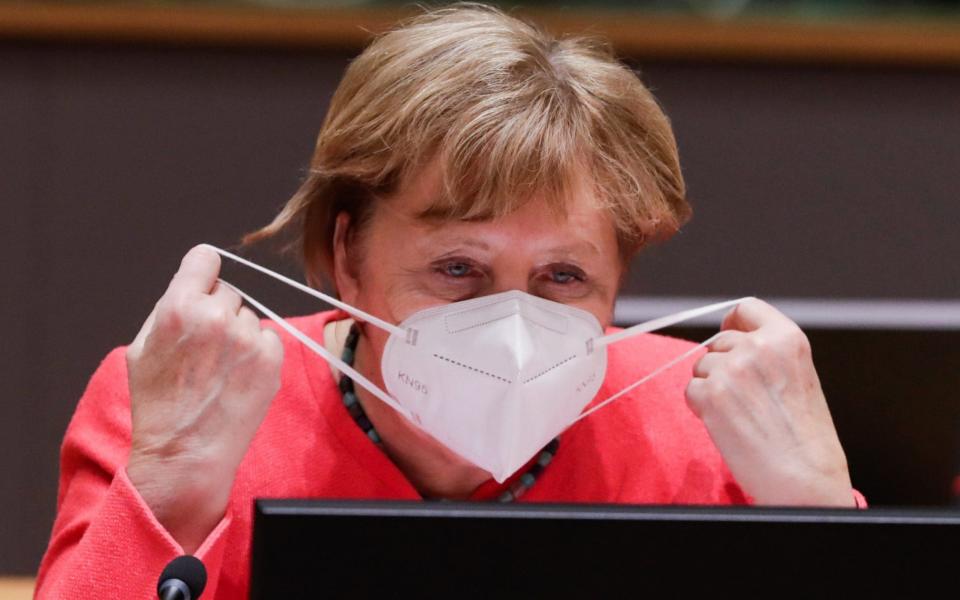Second wave warning as Germany suffers record slump

Germany's economic recovery risks being derailed by a second wave of Covid-19 as the country battles back from its deepest slump in at least 50 years, experts have warned.
Output in Europe's biggest economy plunged by 10.1pc between April and June, more than double the hit it suffered in early 2009 after the financial crisis - and the worst fall since the Federal Statistical Office (FSO) began collecting quarterly data in 1970.
Officials now fear that a fresh surge in Covid inections may put paid to hopes of a swift bounce back.
Germany recorded 839 new cases in the latest 24 hours, its highest level for six weeks according to data from Johns Hopkins University. The country's public health institute called the development "very concerning".
As a manufacturing powerhouse heavily dependent on exports, Germany was particularly hard hit by a collapse in global trade after coronavirus struck with the FSO reporting a massive slump in exports and imports.
The Eurozone overall is expected to unveil an even deeper 15.6pc collapse in GDP on Friday.
Germany has thrown its full fiscal might at the crisis, launching an initial €750bn (£680bn) emergency package in March followed by a further €130bn of measures last month including a temporary VAT cut.
Its leading thinktank, the Ifo institute, predicts a recovery of 6.9pc between July and September. However, economists have warned the fightback is already losing some momentum.
Jorg Kramer, an economist at Commerzbank, said: “There are several arguments in favour of a slower pace in the coming weeks – such as the difficult situation on the labour market or the higher indebtedness of companies, which were forced to run up debt to bridge the lockdown and now have to pay the loans back, forcing them to save.
“In addition, the virus and the restrictions imposed to contain it will continue to hamper activity in some sectors of the economy and prevent a return to normality there for the foreseeable future. This effect would be greatly reinforced if a second corona wave were to occur in the coming weeks.”
Even if Germany escapes a second wave itself, its economy will suffer due to its dependence on trading with other European nations at risk of their own outbreaks, Capital Economics said.
Andrew Kenningham, chief European economist, said: “The economy will be constrained by the ongoing weakness of external demand because of its dependence on exports, so a second wave of infections and confinement measures elsewhere in Europe is a major downside risk.”
The German data came as unemployment across the 19-member Eurozone edged up to 7.8pc, its highest since February last year.
Europe’s statistics agency warned true unemployment could be much higher because many unemployed workers are no longer looking for jobs, excluding them from the count.
Despite the second wave threat, the head of France's central bank suggested its own economic slump may not be as bad as first feared.
Governor Francois Villeroy de Galhau said the nation's performance may be "a little better" than the 10pc fall in GDP pencilled in by the Bank of France this year, with output returning to pre-crisis levels in early 2022.
President Emmanuel Macron unveiled a support package worth €137bn in March to ward off the virus, and will present another €100bn stimulus to propel the recovery after the summer.
But Mr Villeroy warned: "Public money is not unlimited. The 'whatever it takes' must progressively give way to 'when it is needed’.”

 Yahoo Finance
Yahoo Finance 